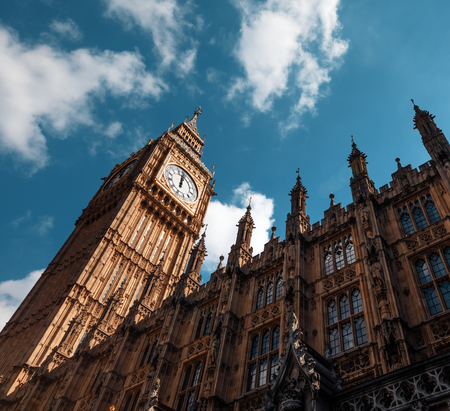Understanding the UK Supply Chain Landscape
The British supply chain is a sophisticated network shaped by centuries of commerce, innovation, and regulatory evolution. At its core, the UK supply chain encompasses manufacturers, wholesalers, distributors, logistics providers, and retailers—all working in tandem to deliver goods efficiently across the nation and beyond. This interconnected structure is underpinned by the country’s world-class infrastructure, from major ports like Felixstowe and Southampton to advanced road and rail networks linking regions seamlessly.
Current market dynamics are influenced by several key factors: post-Brexit trade adjustments, digital transformation, sustainability initiatives, and shifts in consumer behaviour. As businesses adapt to new trade agreements with Europe and global partners, agility in supplier relationships has become paramount. Digital technologies—such as automation, AI-driven forecasting, and supply chain transparency tools—are being rapidly adopted to increase resilience and competitiveness.
Regional differences also play a significant role in sourcing strategies. For example, suppliers in the North West may specialise in advanced manufacturing and automotive components, while those in the South East are often focused on pharmaceuticals or high-value consumer goods. Understanding these regional strengths enables brands to tap into local expertise and shorten lead times.
Regulation remains a defining feature of the UK supply chain landscape. Compliance with standards such as ISO certifications, environmental legislation (like the UK Plastics Pact), health and safety rules, and ethical sourcing guidelines is non-negotiable for maintaining trust and credibility with both partners and end consumers. Additionally, customs requirements post-Brexit have introduced new documentation processes that must be managed diligently.
Navigating this complex environment requires not only an awareness of current trends but also an ability to build strong relationships rooted in transparency, shared values, and adaptability. By understanding the unique characteristics of the British supply chain landscape, brands can position themselves to source more strategically—and sustainably—within the UK marketplace.
2. Identifying and Vetting Reliable UK Suppliers
Finding the right UK suppliers is pivotal to securing a resilient and efficient supply chain. Whether you are sourcing for retail, manufacturing, or e-commerce, British suppliers must be thoroughly vetted to ensure consistent quality, compliance with local regulations, and alignment with your brand’s values. Here’s how to identify and assess trustworthy UK-based partners using proven criteria and resources.
Key Criteria for Selecting UK Suppliers
When evaluating potential suppliers in the UK, focus on these essential criteria:
| Criteria | Description |
|---|---|
| Accreditations & Memberships | Look for affiliations with bodies like the British Standards Institution (BSI) or membership in trade associations such as the Federation of Small Businesses (FSB). |
| Financial Stability | Check company financials through services like Companies House or Experian to confirm long-term viability. |
| Compliance & Certifications | Ensure adherence to UK regulations (such as CE marking, ISO certifications, or specific sector standards). |
| Reputation & References | Request client testimonials, case studies, or reviews from platforms like Trustpilot or Feefo. |
| Operational Capabilities | Assess production capacity, lead times, and ability to scale according to your requirements. |
| Sustainability Practices | Increasingly vital for British consumers; verify supplier sustainability policies and ethical sourcing credentials. |
Trusted Resources for Sourcing UK Suppliers
- UK Trade Shows & Exhibitions: Events like The Business Show London or Spring Fair Birmingham connect you directly with vetted suppliers.
- B2B Marketplaces: Use platforms tailored to the UK market such as Alibaba UK, Made-in-Britain.org, or the London Chamber of Commerce directory.
- Government Portals: The Department for Business & Trade (DBT) offers directories and support for finding registered suppliers across Britain.
- Local Networking: Engage with regional business hubs and chambers of commerce for referrals and background checks.
Due Diligence Best Practices
An effective due diligence process mitigates risk and builds lasting supplier relationships. Start by conducting background checks through Companies House for legal status verification. Arrange site visits where feasible—face-to-face meetings resonate well in British business culture and build trust. Request up-to-date insurance certificates, audit reports, and sample products. Ensure all agreements are formalised in clear contracts under English law, explicitly detailing service levels, payment terms, and contingency plans. Finally, maintain open lines of communication; regular check-ins reflect professionalism and reinforce supplier accountability within the UK context.

3. Building Lasting Partnerships with British Suppliers
When sourcing suppliers within the UK, developing long-term partnerships is far more valuable than simply negotiating one-off transactions. The foundation of successful relationships with British suppliers lies in understanding and respecting local business etiquette, as well as embracing a communication style that fosters mutual trust and respect.
Embracing British Business Etiquette
British business culture values professionalism, politeness, and punctuality. Initial meetings tend to be formal, with a strong emphasis on courtesy—always address your supplier contacts by their title and surname until invited to do otherwise. A firm handshake remains standard for introductions, and following up promptly after meetings or calls is seen as a mark of reliability. Avoid overly aggressive negotiation tactics; instead, focus on clear, honest discussions that demonstrate integrity and transparency.
Effective Communication: Clarity & Consistency
British suppliers appreciate directness balanced with diplomacy. Articulate your needs clearly and avoid ambiguity in both written and verbal communication. Regular updates—whether via email, phone, or even face-to-face visits—help foster openness and reduce misunderstandings. Remember, humour is often used to build rapport in the UK, but it’s best to keep it subtle and professional in early stages of the relationship.
Mutual Benefit: The Foundation of Strong Partnerships
A successful supplier relationship should deliver value to both parties. Take time to understand your supplier’s business challenges and goals—this insight can help you collaborate on solutions that benefit everyone involved. Be proactive about feedback, celebrate shared successes, and support each other through market changes. This approach not only strengthens loyalty but also positions your brand as a partner of choice in the competitive UK marketplace.
Nurturing Trust for Long-Term Success
Trust is earned over time through consistent actions. Honour agreements, pay invoices promptly, and be transparent about your business needs or potential challenges. Invest in regular site visits when possible; seeing operations first-hand shows genuine interest and respect for the partnership. By nurturing these relationships with patience and care, you’ll establish a robust supply chain network rooted in reliability and shared growth.
4. Navigating Contracts, Compliance, and Standards
Securing reliable UK suppliers goes beyond price negotiations—it demands a clear understanding of essential legal requirements, British contract terms, and robust industry standards. Here’s how to ensure your supplier partnerships are compliant, transparent, and resilient within the UK business landscape.
Essential Legal Requirements
When sourcing from UK suppliers, it’s crucial to adhere to the country’s legislative framework. This includes:
- The Supply of Goods and Services Act 1982: Ensures all goods supplied are of satisfactory quality and fit for purpose.
- Modern Slavery Act 2015: Requires transparency in supply chains to prevent exploitation.
- GDPR (General Data Protection Regulation): Mandates proper handling and processing of personal data.
Key British Contract Terms
British supplier agreements often include specific terminology and clauses. Understanding these will help you avoid misinterpretations and costly disputes. Here’s a table summarising common UK contract terms:
| Term | Description | Why It Matters |
|---|---|---|
| Force Majeure | Covers unforeseeable events preventing fulfilment of obligations | Protects both parties during extraordinary circumstances |
| Retention of Title | The supplier retains ownership until payment is complete | Secures supplier interests; impacts risk and liability transfer |
| Indemnity Clause | Outlines compensation for losses caused by breach or negligence | Clarifies financial responsibility in case of disputes |
| Breach Remedies | Specifies actions if contractual obligations aren’t met | Ensures swift resolution and sets out recourse options |
Navigating Industry Standards
The UK market places strong emphasis on recognised standards that demonstrate quality assurance and compliance. Key certifications include:
- ISO 9001: Quality management systems certification, widely expected across sectors.
- BRCGS (Brand Reputation through Compliance Global Standard): Essential for food, packaging, and consumer product suppliers.
- CE Marking/UKCA Marking: Demonstrates conformity with British safety regulations post-Brexit.
The Value of Transparent Supplier Engagements
A transparent approach builds trust and long-term value. Prioritise regular audits, clear communication channels, and documented processes to reinforce accountability at every stage of your UK supply chain.
5. Mitigating Risks and Ensuring Resilience
Managing risks within the UK supply chain requires a nuanced approach that considers both domestic and international factors. British businesses must be prepared for challenges ranging from regulatory shifts post-Brexit to unpredictable weather disruptions and transport strikes. The key lies in proactive risk management strategies tailored to the UK’s unique market landscape.
Understanding the Risk Landscape
UK supply chains face distinct threats, including customs delays at ports, changes in import/export regulations, and fluctuating currency rates. Additionally, supplier insolvency and regional disruptions can impact continuity. Identifying these risks through thorough mapping and regular audits is essential for building resilience.
Implementing Robust Contingency Planning
A solid contingency plan starts with diversified sourcing. Avoid single-supplier dependency by developing relationships with multiple UK-based partners across different regions. This not only buffers against localised disruptions but also leverages regional strengths.
Leveraging Technology and Real-Time Data
Modern supply chain software offers real-time visibility into inventory levels, delivery schedules, and potential bottlenecks. Adopting such technology enables quicker response times to unforeseen events—whether it’s a delay at Felixstowe port or sudden spikes in demand during peak retail periods.
Fostering Collaborative Supplier Relationships
Open communication channels with your suppliers are vital. Regularly review performance metrics, discuss potential risks, and co-create risk mitigation plans. Many UK suppliers value transparency and partnership, making collaborative risk management a strong competitive advantage.
Building Supply Chain Agility
The most resilient British supply chains are those able to adapt rapidly to change. Conduct scenario planning exercises, invest in staff training on crisis response, and maintain flexible logistics arrangements—such as multi-modal transport options—to ensure business continuity even under pressure.
In summary, mitigating risks in the UK supply chain environment demands tailored strategies blending local insight with global best practice. By anticipating challenges and preparing robust responses, your business can thrive amidst uncertainty while safeguarding its brand reputation in the British marketplace.
6. Embracing Sustainability and Ethical Sourcing
In recent years, the UK has witnessed a marked shift towards sustainability and ethical sourcing across its supply chains. British consumers are increasingly conscious of the environmental and social impact of their purchases, compelling businesses to prioritise responsible sourcing in order to maintain trust and loyalty. Integrating sustainability into your supplier strategy is no longer a mere value-add; it’s an essential aspect of doing business in the UK marketplace.
The UK’s Evolving Sustainability Landscape
Government regulations, such as the Modern Slavery Act and increasing environmental compliance requirements, have placed a spotlight on transparency and accountability. Many UK suppliers now adhere to certifications like Fairtrade, B Corp, or ISO 14001, demonstrating their commitment to ethical and sustainable practices. For brands seeking to resonate with British customers, aligning with suppliers who share these values is crucial.
Building an Ethically-Driven Supplier Network
To embed sustainability into your procurement process, start by auditing potential suppliers for their environmental policies, labour conditions, and supply chain transparency. Request documentation around sourcing practices, audit results, and proof of relevant certifications. Engage in open dialogue to understand how suppliers manage waste, reduce carbon emissions, or support local communities. These actions not only mitigate risks but also position your brand as forward-thinking and socially responsible.
Turning Sustainable Sourcing into Competitive Advantage
Forward-looking UK brands leverage their commitment to ethical sourcing as a point of differentiation in crowded markets. By working collaboratively with suppliers to innovate around eco-friendly materials or low-impact manufacturing processes, you can enhance product appeal while reducing operational risk. Communicate these efforts authentically in your brand messaging—British consumers are quick to spot greenwashing and value genuine impact over empty claims.
In summary, embedding sustainability and ethical sourcing into your UK supplier strategy not only meets regulatory expectations but also strengthens your brand’s reputation, builds customer loyalty, and unlocks new growth opportunities in the British market.


